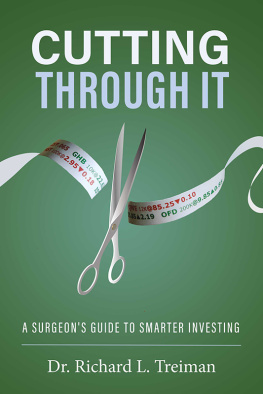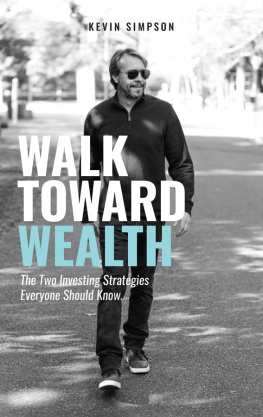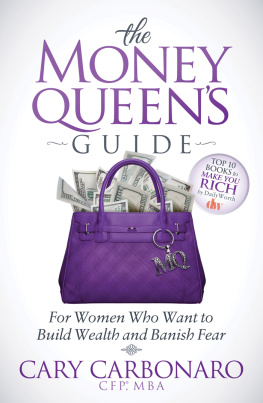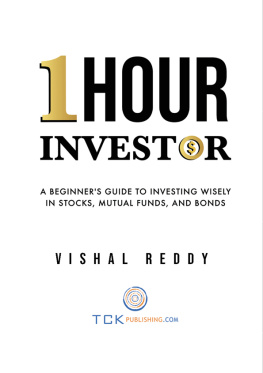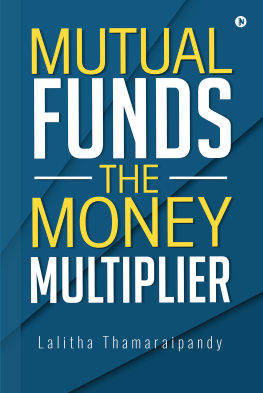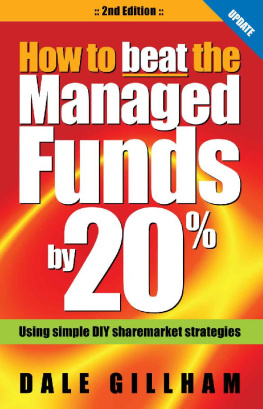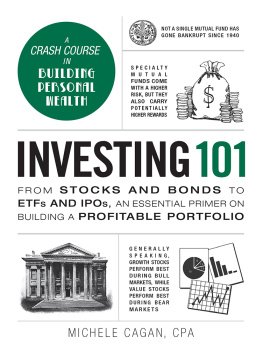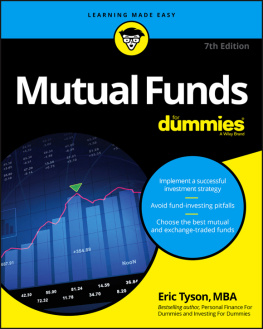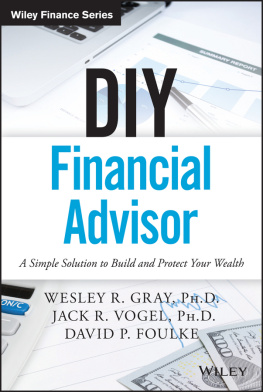I would like to thank the many people who made this book possible. First and foremost, my committed literary agent, Regina Brooks, the wearer of many hats. To our editor, Sulay Hernandez, who took the risk on a concept and molded our ideas into a book we can all be proud of. To Carlos Falchi, who understands that a womans purse is an investment and style is for every woman. To Brenda Lane Richardson, whose creativity helped to create the book I envisioned. And finally, my husband, Terry Owens, who cheered us all on to the very end.
I am always grateful to the Great Creator for continued inspiration and love. I am grateful also for Regina Brooks, agent extraordinaire, and Deborah Owens for her intelligence and unflagging good nature. My thanks also to Jim Kasson for reading our early manuscript, and our editor, Sulay Hernandez, who had the creative vision to imagine what Purse could become. I am thankful for the continued support of the Reverend Dr. William Mark Richardson; our children, H. P. Worthington III, Mark Richardson Jr., Carolyn Richardson; and our grandson, Tiger Kali Worthington. I am grateful beyond measure for support from the highly talented purse designer, Carlos Falchi, and his assistant and daughter, Kate Falchi. Finally, thank you to my professors at New York Universitys Silver School of Social Work.
PURSESSENTIALS
Like that tube of ChapStick or the emery board that you keep in your purse, Pursessentials are tools and resources designed to fit specific circumstances. Whether its addressing your credit score or hiring a financial advisor, you can find the solutions that allow you to put the finishing touches on your finances.
PURSESSENTIAL # 1: CUTTING BACK ON EVERYDAY EXPENSES
The following ideas will help you ensure that you have money to invest.
Save on Food and Beverages
Look for two-for-one or early bird specials if you eat in restaurants with friends who are also trying to save more money.
Cook on weekends, and use the frozen dinners the rest of the week.
Order from the childrens menu when you go out to eat.
Save on Commuting
Keep your car on its scheduled maintenance so that it will last longer.
Wash your own car and pump your own gas.
Some gas stations even give free or discounted car washes with gas purchases.
Save on Your Telephone
Do you really need a home phone? If so, dont pay for an expensive plan. Many people now are using their cell phones as their main and/or only phone line.
Make free long-distance calls over the Internet by downloading software from www.Skype.com .
Look at your phone bill. Do you really need the extra line, caller ID, call waiting, and call forwarding?
Save on Clothing
Look through your closet with new eyes. Allow yourself to feel gratitude for the clothing and accessories that you have acquired.
Demonstrate your appreciation by wearing what you have and encouraging yourself to enjoy the experience.
Declare a moratorium on shopping, lasting from two months to a year, depending on your financial needs.
Find a fashionable consignment shop where you can sell some of the clothes that you no longer wear, and if you truly need something, shop while youre there.
Swap clothes with a friend.
Save on Entertainment
Reassess your cable TV costs. If you need it only for reception, get the basic plan.
Cut out cable and download missed episodes of favorite shows from network sites; try www.hulu.com or www.nbc.com .
Share rental movies with friends or check out DVDs from the library.
Go to matinees to see new films.
Ask for senior discounts if youre old enough. Youd be surprised at how often you get them.
Save on Insurance
Check your insurance premiums. Get quotes online ( www.Quotes.com ) or from an insurance broker or agent to see if you can save some money on your premiums.
You may get a better rate by having your home or renters insurance with the same carrier as your auto insurance.
Save on Miscellaneous Items
Walk or ride your bike instead of joining a gym or paying a personal trainer. If you dont have a bike, buy a used one at a flea market or on www.craigslist.com .
Instead of buying lottery tickets, put the money into your interest-bearing cash reserve account. Your odds of winning are better.
Clean your own house.
Mow your own lawn. Its good for your mind, your body, and your pocketbook.
Shop for Christmas all year long and take advantage of sales.
Get a roommate or rent a room in your home. If you rent to a student who wont be there all year long, youll still have some privacy.
Save money in an interest-bearing account for big items such as furniture, and buy when you have the money instead of financing on credit.
Research large items that you plan to buy on the Internet to save gas and time, and avoid falling for persuasive salespeople.
Take enough cash from each paycheck to get you through that period, and avoid two stops at the ATM. Keep track of where that cash is going.
PURSESSENTIAL # 2: FINDING A FINANCIAL ADVISOR
If youve investing $10,000 or more, you might want to consult with an advisor. The vast number of products and investment vehicles and the incredible array of mutual funds, stocks, bonds, and other investments can cause a bad case of analysis paralysis. An advisor can help you navigate through unfamiliar territory.
If you do decide to work with a financial advisor, its important to remember that you are doing the hiring, not the other way around.
The bottom line on selecting an advisor is that you should do homework. There is no substitute for preparation, and because the individual you select may work with you for some time, you should do as much preparing and interviewing as needed until you find the right fit for your situation.
First, decide what you want from a financial advisor. Here are four important goals:
Create and grow wealth for you.
Protect and preserve your wealth.
Plan for the most tax-advantaged distribution of wealth during life.
Plan for the most tax-advantaged distribution of wealth at death.
QUALITIES OF AN EFFECTIVE ADVISOR
It is essential that a good advisor be:
TRUSTWORTHY
Since your financial journey will last a lifetime, be certain that you trust the advisor(s) youre bringing with you on the trip. Trustworthiness is first because it is the foundation for your relationship. All the good looks, smooth talk, and letters after her last name on her business card dont mean much if you dont have faith in what shes telling you. Having trust and faith means having a comfortable feeling about the path youre on; not having it means questioning almost everything that your advisor recommends and hating her during market turmoil.
AN EDUCATOR
A good advisor must be an educator. Most people who are good at their profession possess this trait. A good teacher communicates well and is willing to explain something more than once and in more than one way, if necessary. Remember, advisors have gone to school to learn what they know. Expect an advisor to translate terms and concepts to you in ways that you can grasp, and never be afraid to ask a question more than once.
A good financial advisor will also help you understand whatever investments you may already own, especially those investments that may have been made for you on behalf of your work-related funds. An advisor who educates you will lead you to your best solutions.
A GOOD LISTENER
Have you ever sought advice from someone who did nothing but talk? The expert told you what she thought and gave her opinion, with very little input from you. Frustrating! Advisors must also have the ability to listen if theyre going to comprehend your needs and give you insightful advice. You must be able to fully express your goals, fears, hopes, dreams, and present financial situation. Your advisor should listen, take notes, ask questions, and then give you feedback on what you just said. Only then can your advisor start to fully understand where you are now and where you want to go, and then formulate a plan to get you there.


